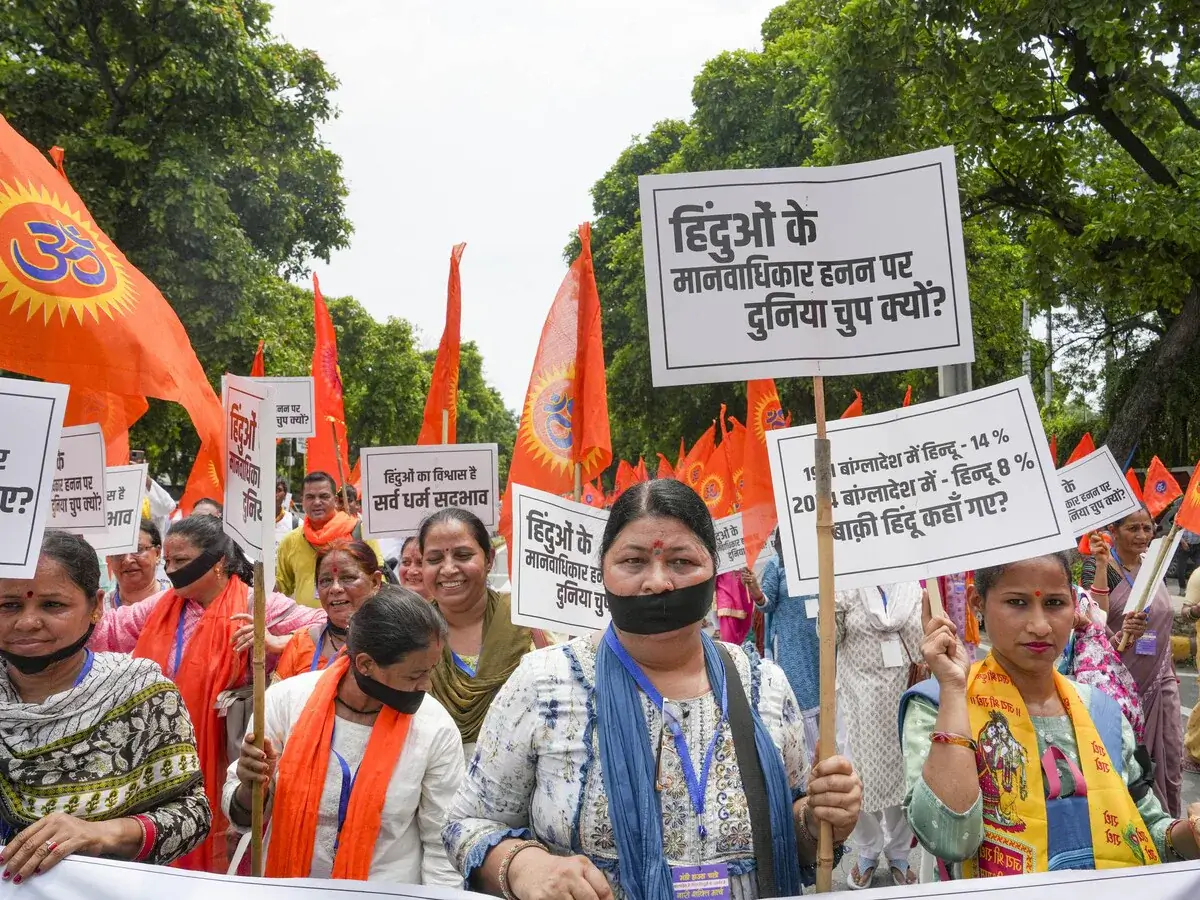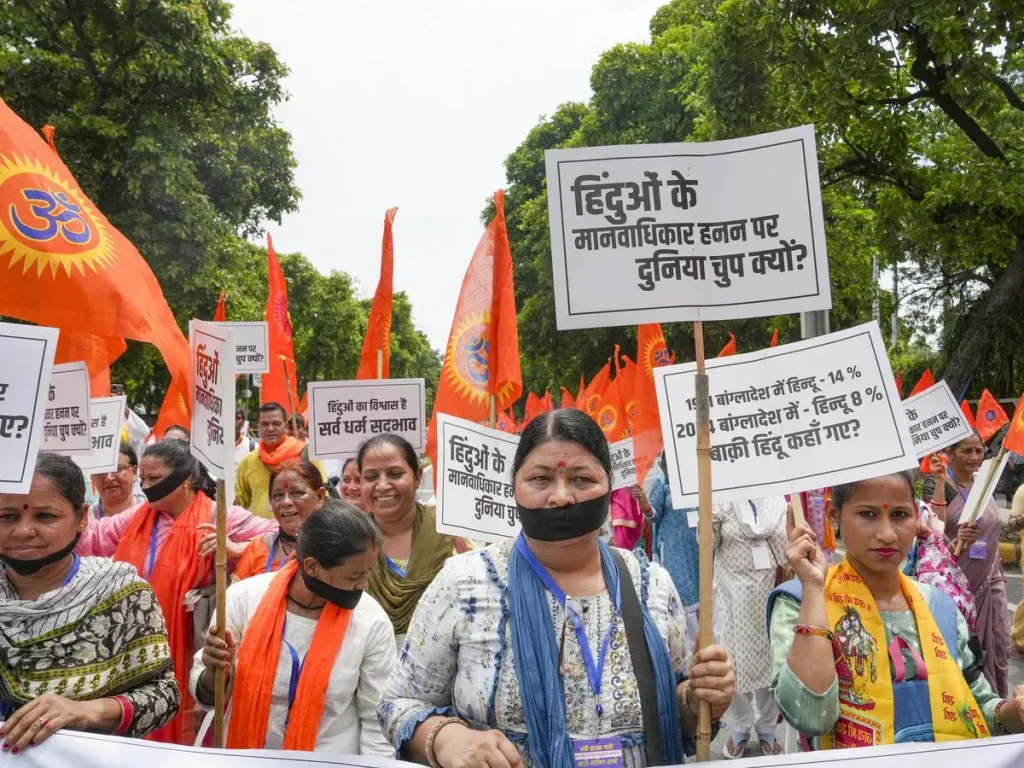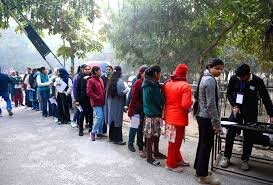
Table of Contents

In a sobering revelation, the Bangladesh government has reported a staggering 2,200 cases of violence against Hindus and other minority communities in the country up to December 8 this year. These figures shed light on the persistent challenges faced by minorities in Bangladesh, sparking widespread concern and debate both domestically and internationally. Let’s delve deeper into the implications of this alarming statistic and what it means for the future of minority rights in the country.
A Year Marked by Turmoil
The reported cases of violence range from physical assaults and destruction of property to more heinous acts like sexual violence and killings. Hindus, who constitute roughly 8-10% of Bangladesh’s population, have borne the brunt of these attacks, alongside other minority groups, including Buddhists and Christians.
Incidents of violence often spike around significant religious or political events. For example, communal tensions during Durga Puja celebrations and political rallies have historically led to attacks on minority communities. This year has been no exception, with several high-profile cases drawing media attention and public outrage.
Notable Incidents
- Durga Puja Attacks: One of the most disturbing episodes this year occurred during the Durga Puja festivities, when temples and community centers were vandalized in several districts. These attacks disrupted the most significant Hindu festival and left many feeling unsafe in their own country.
- Land Grabbing and Arson: Reports of land grabbing targeting minority-owned properties have been rampant. In many cases, homes and businesses belonging to Hindus were set on fire, forcing families to flee and leaving them destitute.
- Violence Against Women: Women from minority communities have been particularly vulnerable, with numerous cases of abduction, sexual violence, and forced conversions reported throughout the year.
Government Response
The Bangladesh government has acknowledged the gravity of the situation, with Prime Minister Sheikh Hasina reiterating her commitment to safeguarding minority rights. Authorities have arrested several suspects in connection with these incidents, and special task forces have been deployed in some areas to prevent further violence.
Despite these measures, critics argue that the government’s response has been reactive rather than proactive. Human rights organizations and activists have called for more robust action, including stricter law enforcement, better protection for vulnerable communities, and educational initiatives to promote communal harmony.
Historical Context
Violence against minorities in Bangladesh is not a new phenomenon. The country’s Hindu population has steadily declined since its independence in 1971, primarily due to migration prompted by insecurity and systemic discrimination. While Bangladesh’s constitution guarantees equal rights to all citizens, minorities often face challenges in accessing justice and asserting their rights.
The Vested Property Act, a remnant of colonial-era laws, has been particularly detrimental to Hindus, allowing the state to confiscate property from those deemed “enemies” of the nation. Though repealed, its effects linger, contributing to land disputes and displacement.
International Reactions
The international community has taken note of the rising violence against minorities in Bangladesh. Human rights organizations like Amnesty International and Human Rights Watch have issued statements condemning the attacks and urging the government to take immediate action.
India, which shares deep cultural and historical ties with Bangladesh, has expressed concern over the safety of Hindus and other minorities. Diplomatic channels have been utilized to address these issues, with India offering support to improve minority protections.
The Role of Civil Society
Civil society organizations in Bangladesh have been vocal in condemning these acts of violence. Activists and journalists have played a crucial role in documenting incidents and bringing them to public attention. However, many face threats and harassment for their work, highlighting the risks involved in advocating for minority rights.
Religious leaders from various communities have also called for peace and understanding, organizing interfaith dialogues to foster communal harmony. These initiatives, though commendable, require broader societal support to create lasting change.
Path Forward
Addressing violence against minorities in Bangladesh requires a multi-faceted approach:
- Legal Reforms: Strengthening laws to protect minority rights and ensuring their effective implementation is crucial. Fast-tracking cases related to communal violence can serve as a deterrent.
- Education and Awareness: Promoting inclusive education that emphasizes communal harmony and the contributions of minorities to Bangladesh’s history can help combat prejudice.
- Strengthening Law Enforcement: Training police and judiciary personnel to handle cases of communal violence sensitively and efficiently can improve trust in the justice system.
- International Collaboration: Engaging with international human rights organizations can provide technical and financial support for initiatives aimed at protecting minorities.
A Call for Unity
The 2,200 reported cases of violence against minorities in Bangladesh this year are a grim reminder of the challenges faced by these communities. However, they also present an opportunity for introspection and action. By addressing systemic issues and fostering a culture of inclusivity, Bangladesh can move closer to the ideals of equality and justice enshrined in its constitution.
The road ahead is undoubtedly challenging, but with concerted efforts from the government, civil society, and the international community, a safer and more inclusive Bangladesh is possible. Let this year’s tragic statistics serve as a wake-up call and a catalyst for meaningful change.
For more interesting stories: “Punjab’s ‘Rail Roko’ Protest: A Bold Stand Shaping the Nation’s Dialogue”. | Bangladesh Alarming Statistics: 2,200 Cases of Violence Against Hindus and Minorities Until December 8.


